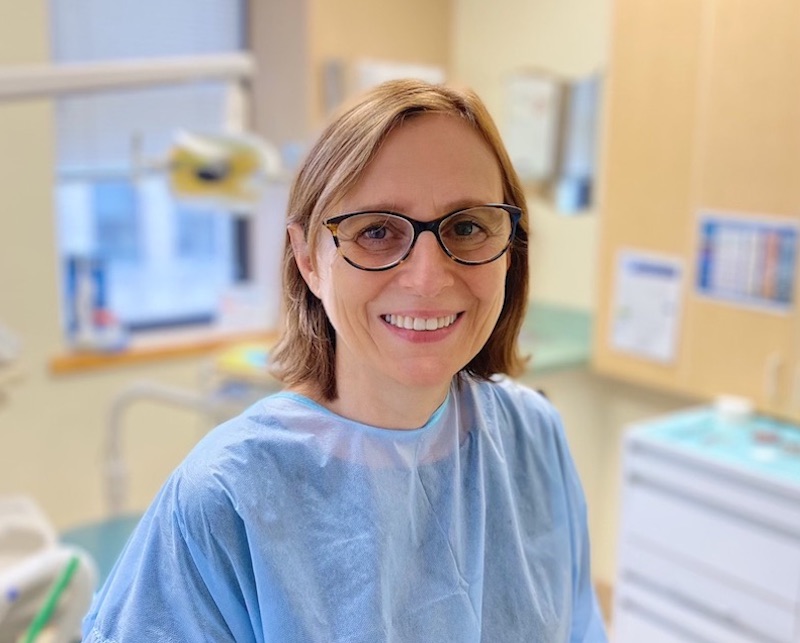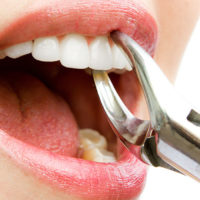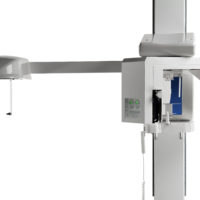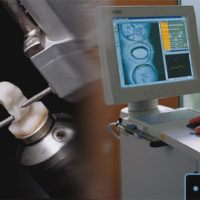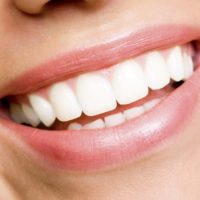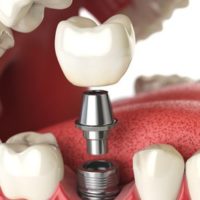What makes this practice unique in Philly?
Tamar Mouradian: Our uniqueness, without question, is our ability to do everything under one roof, and often in one session. Dr. Mouradian’s expertise in a wide range of dental services and treatments allows us to be flexible and adaptable to patients’ needs and concerns. In addition, the doctor’s eagerness to learn and master the latest technologies while always seeking ways to improve techniques keeps our practice advancing.
Have oral needs or problems changed or evolved over the last 15 years or so?
TM: I wouldn’t say that the problems themselves have changed, but rather that, as practitioners, we are more aware of conditions, and have better tools to treat them. For example, a lot of people have TMJ [temporomandibular joint] problems, or headaches because of the way their teeth are aligned. Years ago, that was often not recognized. Now we know where it’s most likely coming from—can identify the source and help people improve their bite. In many cases, this is done with Invisalign® [a transparent plastic form of dental braces]. Or, if someone has sleep apnea, we are more aware of the effects that this can have on the health of teeth, and work to help create habits that can prevent damage to them. So yes, what’s changed or evolved in the last 15 years is our understanding of different issues and needs, which enables us to focus on more comprehensive evaluations and new ways to help.
A 2019 study by OnePoll, commissioned by SNOW Cosmetics, Inc, indicated that 57% of Americans “…cover their mouths when they laugh due to insecurity over their teeth—and one in two will often try to smile with their mouth closed.” Do you hear patients express that level of insecurity about their teeth, or smile?
TM: We certainly do get some people with a lack of satisfaction regarding their smile. A short while ago, we had a survey for patients asking just that, “Are you happy with your smile?” Approximately 60% indicated that they were not, which is in keeping with those poll results. But most of the time, I wouldn’t agree with patients’ remarks about their smiles. I noticed that the majority of negative comments resulted from comparing their smile and teeth to those of celebrities. “Mine aren’t the same shade of white,” or “Mine don’t look as perfect.” Well, no, they pretty much couldn’t be, in part because the photos they showed me were likely retouched [laughs].
How do you keep your job new…keep things fresh as a practitioner?
TM: In terms of methods and technologies, our practice is constantly looking for ways to advance. By challenging ourselves to stay up to date with dental trends and developments, we stay inspired and motivated. But for me, on a personal level, the biggest factor in keeping things fresh in this industry is our patients. Each one is truly so different. I approach each with an open mind and am ready to listen and learn about them. I’ve always had an interest in getting to know people, their families, careers, and dreams. Being able to make these connections and maintain them throughout the years is what keeps this job exciting.
What challenges are a dentist or hygienist facing in the “post-Covid”—or, better put, “post-vaccine” era?
TM: We had many patients, of course, who stayed away because of anxiety, and are now slowly coming back. They’re vaccinated, so feel safer to do so. Meanwhile, for us as practitioners, we are finding many cases of dental health issues that have gotten significantly worse over the many months of lockdown, so now are working hard to get those under control. But it just goes to show how crucial it is to receive dental care on a consistent schedule to ensure that nothing is missed or neglected. For example, with gum disease; it creeps up on people, so that’s one big challenge. We have also seen increased cases of patients who grind and clench their teeth, which can cause a variety of issues. It is unfortunate but understandable, considering all the stress that everyone has been under throughout the last year and a half.
Does stress affect oral health in ways apart from grinding?
TM: Stress, among other things, causes dry mouth, which results in a multiplication of bacteria. Saliva is a natural health resource, in part because it maintains the pH—the acidity—in your mouth. Less saliva means an imbalance of pH, which creates conditions that can produce cavities and gum disease. Also, but not related to stress, one of the greatest health issues of the 21st century is diabetes. Not caring for that can have a deeply negative impact on oral health.
Why?
TM: When you are a diabetic, your body’s immune system is impaired. This means you can’t fight infections as well, and therefore have difficulty healing from them. In these cases, gum diseases and gum infections can worsen. We see significant problems in oral health if a patient with diabetes does not have the condition under control.
Is there a piece of new—or new-ish—treatment technology that just amazed you, personally or professionally…something that made you say, “This is going to really change things?”
TM: The biggest one for us has been the CEREC® machine, which allows us to help people on the spot. Say someone walks in with a broken front tooth; now, we don’t have to go through the process of giving them a temporary crown and telling them to come back in two or three weeks when the lab has made the final crown. With CEREC, we can just make it here, place it, and the patient walks out happy. That is a game changer. There’s also the CT scanner, which helps us determine issues that we wouldn’t be able to find in any other way—including via X-rays or visual exams. For example, the scan will help us determine why a patient is having pain in a certain area, even when there might be nothing abnormal-looking to the naked eye. Another breakthrough is the laser [Fotona LightWalker® Laser]. Using it, we have seen great improvements in gum disease treatment compared to older methods, such as traditional scaling or gum surgery.
Are people getting better at taking care of their teeth?
TM: Well, I would say the majority of adults are more aware of how to care for their oral health. You can see that they transfer this crucial knowledge to their children, too, so we are seeing a larger number of kids getting better at it.
What do you think of Sonicare, Braun, and other motorized toothbrushes? Have they made a real difference?
TM: Definitely. I would estimate that approximately 60% of my patients use them. It absolutely makes things easier for them, and for me, because they help produce healthier, cleaner mouths, and certainly do less damage from scrubbing too hard. I remember my father was one of those who used to think bearing down with a toothbrush was a virtue. People don’t really do that anymore, thank goodness. There are a variety of reasons why you can get gum recession, such as misalignment of teeth, but brushing too hard can be a big one.
Another home care improvement is the diversity of mouthwashes. There are different kinds specialized for gum care, or tartar buildup, or cavity prevention—and they can be quite effective.
What is required in order to keep your license as a dentist or dental hygienist? What’s the recertification process?
TM: We have to get our licenses renewed every two years. Depending on the profession, we are required to fulfill a certain number of hours of training or education to get recertified. Normally at least half of those credit hours are done in person, but this year, due to Covid, we had to fulfill all our requirements online. Having to take classes helps us stay current with cutting-edge dental advancements, which is an important part of providing the best care.

